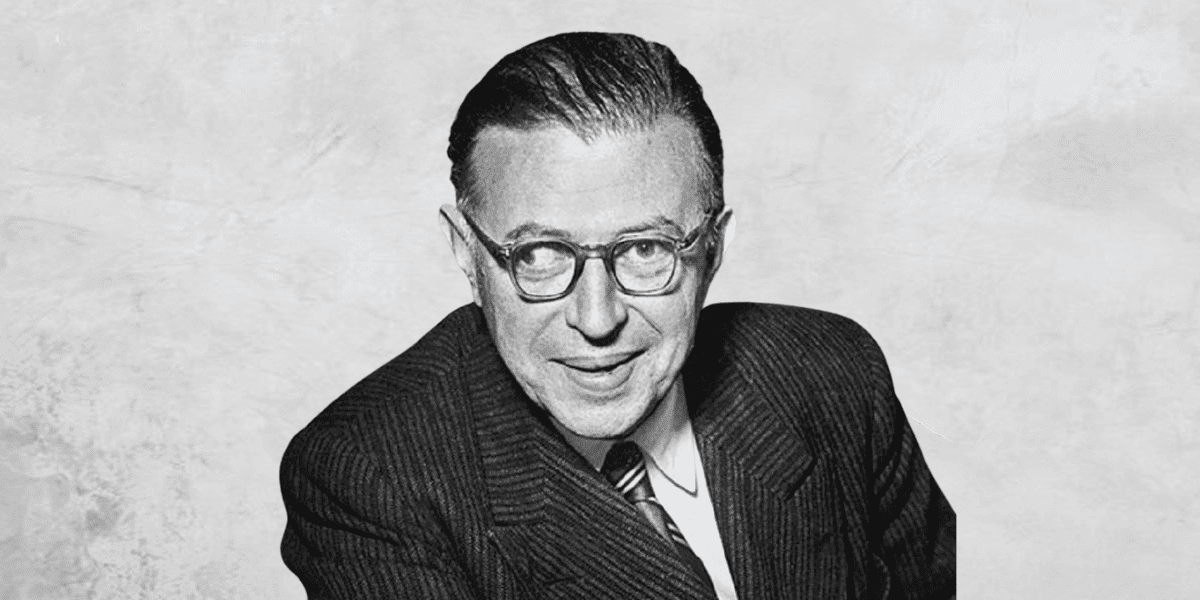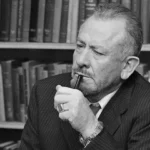From Bullied Child to Rebellious Philosopher: Unveiling the Unexpected Life of Jean-Paul Sartre
Get ready to dive into the mind-bending world of Jean-Paul Sartre, the philosopher who made us question everything! This isn’t just another dusty biography; this is Sartre like you’ve never seen him before. We’ll uncover the surprising truths about his tough childhood, his daring wartime experiences, and his groundbreaking ideas about life, freedom, and the human condition. From his unconventional love affair with Simone de Beauvoir to his defiant refusal of the Nobel Prize, Sartre’s story is as wild as it is insightful. So, buckle up and let’s explore the mind of a man who dared to think differently.
Jean-Paul Sartre: More Than Just a Name in a Textbook
Jean-Paul Sartre—the name conjures up images of smoky Parisian cafes, intense philosophical debates, and maybe even a beret or two. But beyond the stereotypes, Sartre’s life was a fascinating mix of profound thought, rebellious spirit, and a heavy dose of personal drama. Let’s delve into some mind-blowing facts about this iconic existentialist:
From a Childhood of Bullying to Philosophical Heavyweight
- Imagine little Jean-Paul, born in Paris in 1905. His childhood wasn’t exactly idyllic. He was often bullied, an experience that likely left a lasting impact on his worldview and, some believe, may have even played a role in shaping his philosophical outlook.
- Fast forward a few years, and we find Sartre immersed in the world of philosophy. One of his biggest influences? None other than the rebellious thinker Friedrich Nietzsche, whose ideas about forging your own path and questioning everything, especially the notion of a single “truth,” resonated deeply with Sartre.
War, Resistance, and a Defining Experience
- World War II wasn’t just a historical event for Sartre; it was a life-altering experience. He actively resisted the Nazis as part of the French Resistance, using his writing as a weapon against propaganda.
- And as if fighting for freedom wasn’t enough, he was captured and spent nine months as a prisoner of war. This profoundly impacted his thinking, particularly his ideas about freedom and the absurdity of existence, themes that would later become central to his philosophical work. This experience would spill into his novels and plays, adding a raw, visceral layer to his explorations of the human condition.
Existentialism: Freedom, Responsibility, and Finding Meaning in a Meaningless World
- If there’s one word associated with Sartre, it’s “existentialism.” He wasn’t just a follower; he was the guy who brought this revolutionary way of thinking into the spotlight. Imagine a philosophy that declares we’re all completely free to make our own choices but also completely responsible for the consequences. Liberating and terrifying, right?
- His masterpiece, Being and Nothingness (1943), is like the existentialist bible. It grapples with monumental questions like, “What does it really mean to exist?” and “What’s the point of it all if we have so much freedom but no pre-ordained purpose?” This isn’t light reading, folks!
- But Sartre didn’t just write dry, academic treatises. He wrote novels like Nausea (1938) and plays like No Exit (1944) that transform these heady ideas about consciousness, societal pressures, and our own inner turmoil into gripping, often unsettling, stories.
The Extraordinary Partnership of Sartre and de Beauvoir: A Love Story for the Ages
- Speaking of gripping, Sartre’s relationship with fellow philosopher and feminist icon Simone de Beauvoir was anything but conventional. Theirs was a partnership of the mind and heart, a lifelong bond that challenged traditional ideas about love, commitment, and monogamy. They were the ultimate power couple of the philosophical world.
- Their relationship was a true meeting of minds; they constantly inspired and challenged each other’s work. It’s difficult to imagine one without the other, their intellectual and personal lives so deeply intertwined.
More Than Just a Philosopher: Sartre the Activist
- Jean-Paul Sartre wasn’t content to just sit in cafes and pontificate about the meaning of life. He was a man of action, using his voice and influence to fight against injustice and oppression.
- He passionately opposed French colonialism, becoming a vocal supporter of Algerian independence and the broader decolonization movement. And his book Anti-Semite and Jew (1946), tackles prejudice and anti-Semitism head-on, making it a hugely important work in social philosophy.
- And in a move that shocked the world and cemented his image as a rebel, he refused the Nobel Prize in Literature in 1964! It was a bold statement about his independence, his refusal to be co-opted by institutions he viewed as complicit in maintaining the status quo, and his unwavering commitment to his principles.
Sartre: A Legacy of Uncomfortable Truths
Even now, decades after his death in 1980, Sartre’s work continues to resonate, challenge, and even provoke. His ideas about freedom, responsibility, and the human condition are just as relevant in our modern world as they were back then. He reminds us that we are all authors of our own lives, for better or worse, and that with the burden of freedom comes the awesome responsibility to create meaning in a world that often seems devoid of it.
His wartime experiences, his unconventional relationship with de Beauvoir, his unwavering commitment to social justice—all of these facets of his life continue to spark debate and inspire new generations of thinkers and activists. Sartre was more than just a philosopher; he was a cultural icon, a revolutionary figure who dared to question everything and challenged us to do the same. Love him or hate him, you can’t ignore the impact Jean-Paul Sartre had on 20th-century thought and beyond. He is a testament to the enduring power of ideas to shake up the world and force us to confront the big questions about what it means to be human.
To explore the captivating life of a jazz legend, delve into the facts about Louis Armstrong. Dive into the intriguing world of martial arts and discover facts about Fedor Emelianenko that will leave you in awe.
- Unlock Water’s Symbolism: A Cross-Cultural Exploration - April 20, 2025
- Identify Black and White Snakes: Venomous or Harmless? - April 20, 2025
- Unlocking Potential: Origins High School’s NYC Story - April 20, 2025
















3 thoughts on “Jean-Paul Sartre: Mind-Blowing Facts About the Existentialist Icon”
Comments are closed.